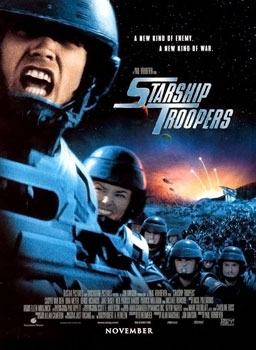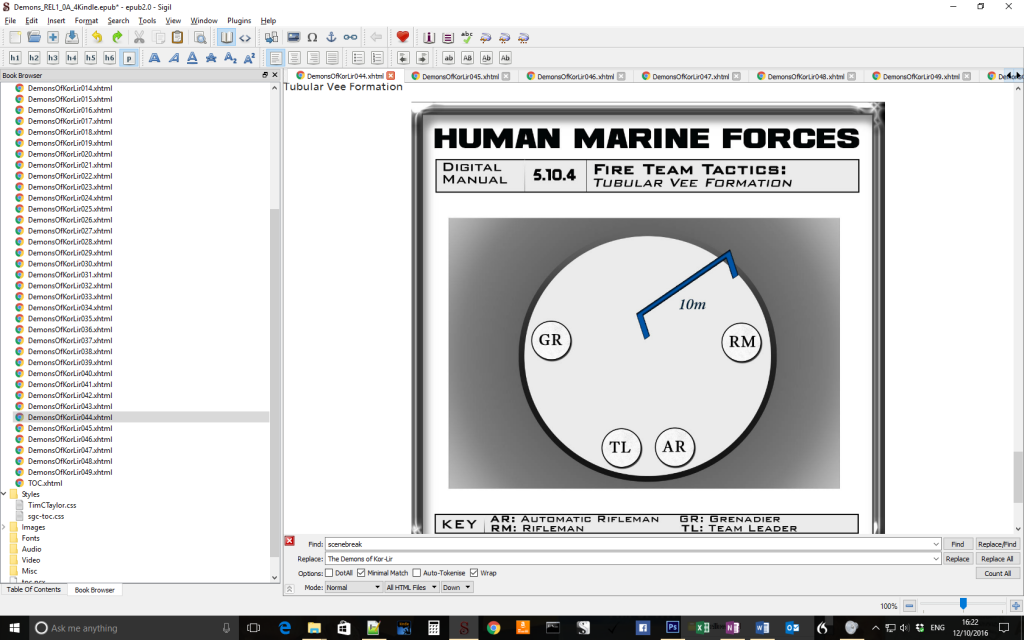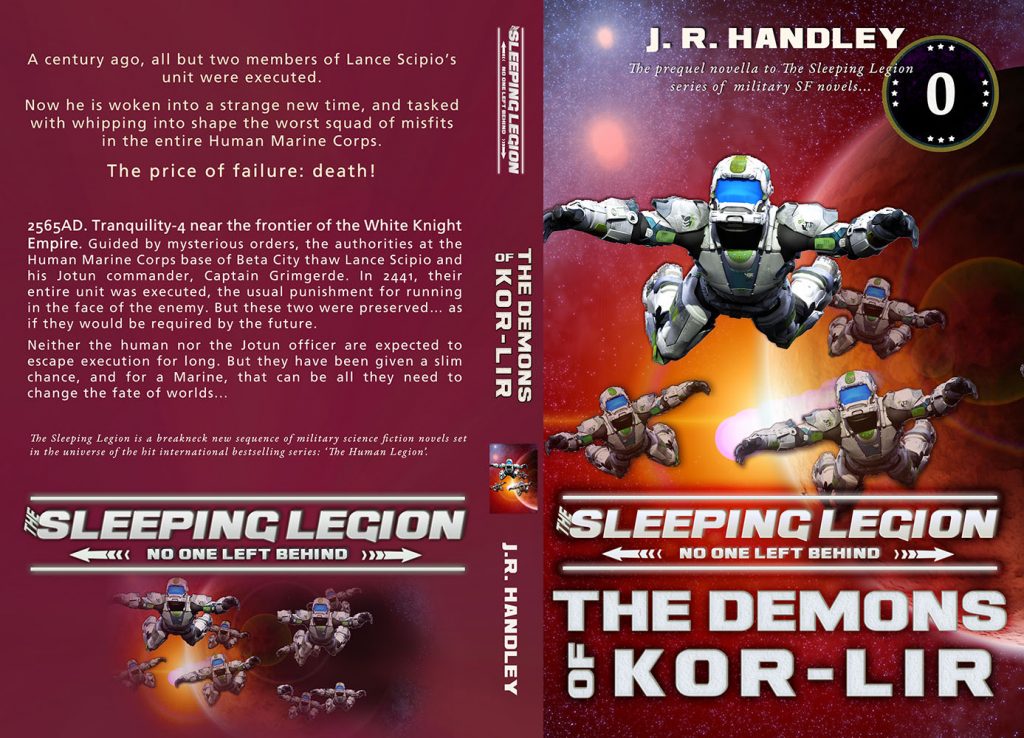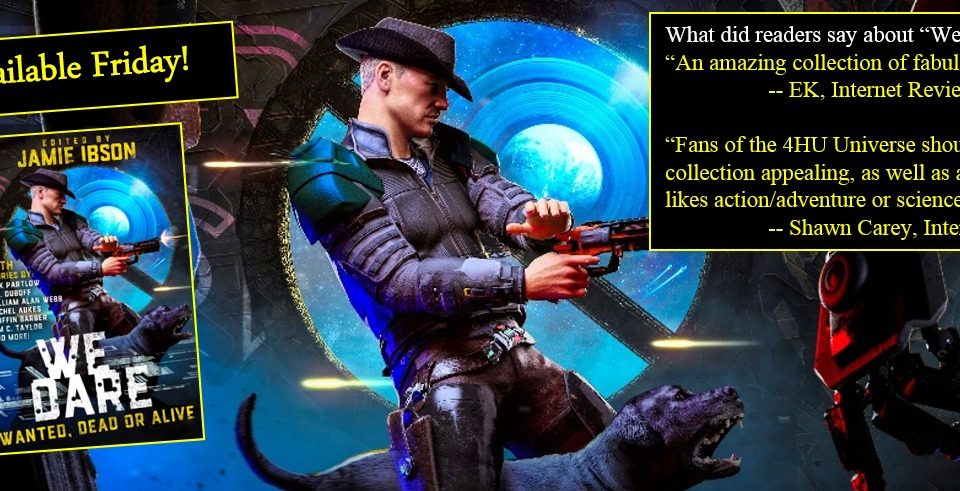
Corey Truax: Welcome to the team!
September 27, 2016
Get yer Crimson Worlds ‘ere. For free
November 4, 2016I’ve been tracking the science fiction bestseller charts on amazon.com since the start of 2011, with particular attention to space opera and military SF. Yes, it is partially professional intelligence gathering to see what is and is not selling, and to get ideas for my next reads, but it’s much more than that. Science fiction publishing is going through its greatest transformation since at least the widespread introduction of the paperback, and as a huge fan I am simply fascinated to watch these changes as they sweep through publishing at internet speeds.
For example, I can take the numbers given by Locus Magazine each year for the number of new science fiction titles published each year, extrapolate backward to the days of HG Wells and Jules Verne with a touch of anecdotal evidence and a large cup of coffee, then factor in the number of titles in Amazon’s science fiction book category and watch how that number has soared since early 2011… My conclusion is that in the entire history of English language science fiction, most titles have been published since 2011. In fact, I calculate the halfway point of science fiction book publishing from the year dot to 2016 is some point in late 2012. Probably a rainy Thursday afternoon in October.
Of course, these numbers turn to smoke when you examine them too closely. For example, what about all the science fiction books that are not categorized as such by their publisher? The Hunger Games and The Handmaid’s Tale are two examples. Nonetheless, what I can say with cast iron certainty is that science fiction publishing is changing at a ferocious pace.
One area of particular interest to me is the realism and credibility of the military side of military science fiction and space opera. It’s certainly true that there have been many authors over the years who have deployed their real-life military experience to give credibility to their novels: David Drake, Joe Haldeman, Elizabeth Moon, John Ringo, Jerry Pournelle, David Sherman, Tom Kratman, and Jack Campbell spring to mind. Authors with other backgrounds can write great military SF too, such as David Weber and Peter F Hamilton.
But there has been an awful lot of silly military SF in recent years from traditional publishing. Remember the mobile infantry tactics in the movie, Starship Troopers? That’s right: grab your helmet and rifle and run at the enemy in a large unruly mob while your orbiting fleet bunches itself up to give maximum target opportunities for the enemy. One interpretation I’ve read of the movie (very different from Heinlein’s book, which the director despised) is that the mobile infantry is designed on purpose to be a disorganized rabble that struggles to win battles, because their fascist political masters want to subject the populace to a state of perpetual war, as was the case in George Orwell’s 1984.
Whatever the reason, I’ve read a lot of ‘grab your rifle and charge’ military SF in the early 2000s (possibly because Baen Books were very difficult to get hold of in the UK).
Then self-publishing exploded.
To begin with there were a host of popular books that weren’t much different, just written with better pace and excitement. You could see a heavy gaming influence. Gamers who played Gears of War, Warhammer 40,000, Halo or a host of other shoot ‘em up and space fighter games would try their hand at writing and generate a whole load of fun, but not so much of the realistic grounding that the generation of Vietnam vets had brought to the field in the 70s.
The world of science fiction self-publishing is brutally Darwinian. If you don’t deliver the books your readers want, they go elsewhere. Earlier I suggested that most science fiction books ever published have been published since 2012. In the history of publishing, there has never been anything like this level of competition before. If, like me, you love your space opera and military SF, then you already know that there is a huge number of excellent authors shouting for our attention. That’s a lot of choice. And a heap of competition.
I’ve been tracking the charts on Amazon since 2011. Some of the authors who were big names then are now… not so much. Like I said, it’s Darwinian. The same is true of the style and subject matter of books being written. I see a lot less of the fun, but not to be taken seriously shoot-em-up romps where a team of superhero-inspired Rambos in space save Earth from the bad guy invaders. Also, a lot less of the Star Trek and Star Trek: Voyager inspired books. They’re still around, and a good thing too, but there is a lot more variety these days.
One of the trends I’m seeing is an increased emphasis on engineering and hard sciences. The desire to get technical details right is becoming more commonplace. Hugh Howey’s Wool described a highly engineered environment and an engineered future, and the main character in the first book is herself an engineer. Andy Weir’s The Martian grew out of a blog playing around with challenges that a colony on Mars might face and imagining solutions. The science of genetics is at the heart of AG Riddle’s The Atlantis Gene. There, right there, are probably the three most popular science fiction books of this century and all have engineering and science at their heart. (And all these million-sellers were originally self-published, by the way, which I mention because one of self-publishing’s greatest strengths is its superior ability to tap into the cultural zeitgeist). I don’t believe the emphasis on technical accuracy is a coincidence because I see it too among lesser novels that sell in the mere tens and hundreds of thousands.
Such as mine.
Although I employ some handwavium in my Human Legion books, in my own small way I’m a part of this trend. My spaceships do not employ convenient artificial gravity, and when the ship accelerates the crew know about it! When my Marines fire their SA-71 railguns, where do the recoil forces go? When a warship fires a laser powerful enough to slice through hull armor, where does the heat generated by the weapon go? I think about these things. I cheat the laws of Conservation of Energy and Conservation of Momentum at times, but I never break them. No doubt I have gotten some details wrong, but I do try.
And so it is with military SF.
There’s been a rapid increase in realistic use of tactics and weaponry. I’m not an expert (I just write the stuff) but it’s less common for me to suspend my disbelief while I read tactics straight out of the Starship Troopers movie. Partially this is explained by an influx of authors with military experience. For example, earlier in the year, I was part of a box set of military science fiction novels, and half the authors were or are serving in the British Army.
And although I joked that I don’t know what I’m talking about, I have surrounded myself with a Human Legion Publications team who do. In addition to the many fine people who give advice and suggestions in the recon teams, we have JR Handley who was in the US Airborne Infantry, Corey Truax who was in the US Navy, and Donna Scott who is an initiate of the Black Library, which means she uses a mixture of prayer and editorial skill to expunge heresy from stories foretelling the grim darkness of the far future in which there is only war. (Or, if you prefer the mundane explanation: Donna edits books for the Warhammer 40,000 line).
I’ve been aware of this increased emphasis on technical realism for some years now, but I was thinking of them last night because I realized I was working on what could be the pinnacle of this trend to date.
Sometimes I wake up in the night and I realize I’ve been dreaming in prose and I’ve just written a scene in my sleep. Years ago I used to code in my sleep. So it is with JR Handley. I’m working on him to dream in prose, but I’m not sure we’re there just yet, and I think that’s because he dreams in small unit tactics. He showed me once the endless binders filled with training material he needed to learn as part of his qualification to become an NCO.
Naturally that attention to tactical detail reflects in his writing. I was building the recon edition of his prequel novella to The Sleeping Legion series (The Demons of Kor-Lir – which is available to Legionaries now. See the link at the bottom of this article.) At the back of the book we have portions of the digital manual used by the Human Marine Corps soldiers. We have diagrams and explanatory text explaining a variety of zero-g fire team tactics. The circle you see in the diagram below is a transit tube commonplace in spaceships and space stations. How do you maximize the firepower in your team? What is the best way to turn a corner? It’s not just a pretty diagram at the back of the book; these are tactics drilled into the soldiers and we see them in action during the story.
Zero-g fire team tactics. Yup, I think it’s fair to say that we’re a part of the trend to more technical realism in science fiction, and I’m damned proud to be a part of that.
Legionaries can now join the recon team for this book. Follow the instructions in Legion Bulletin#4. If you haven’t signed up you will need to go here and JOIN THE LEGION










11 Comments
Tim, good post! So much thought-provoking material here.
As a reader, we’re in a great age of Science Fiction where we have thousands of books to choose from.
As a writer…wow. The competition has never had these sort of numbers before. Even if we include all the short-form scifi produced for the pulps (some of it excellent, some not), I agree that we’re seeing more scifi written now than ever before. It’s difficult for authors to find readers, and sometimes it’s difficult for readers to find authors. Every time I discover a new author and am thrilled with their work, I ask, “How did I not know about this person?”
At this point, I’m not sure we have sufficiently strong tools to find what we want to read. Sometimes Amazon feels like a mosh pit at a particularly dark concert. Categorizing has helped some–such as Hard, Military, Alt History, Cyberpunk, etc.–but I think there’s still a lot of work to do in this area. And it starts with folks like you who take a hard look at the state of scifi and how publishing is evolving.
Thanks for getting us thinking! All of us, readers and writers, have a share in this.
Sincerely,
Mark Boss
Thanks Mark. You know I think you’re right to describe Amazon as a sweaty mosh pit.It tends to be where I hang out, though, because I find it the most effective way to find new books I will enjoy, despite its failings. The old review system in magazines and blogs doesn’t work for me because my tastes don’t overlap much with all but a tiny handful of them. I’ve been listening and reading to a lot of interviews with top-selling science fiction authors (and here I think fantasy is a little different). They all seem to agree that outside of Amazon and Goodreads, reviews played no part in their success. I think the closest equivalent I can think of is AG Riddle, who said he got a sales boost very early on and later found out it was a science fiction fan board who’d discovered his book and were discussing it.
I spent almost a month sitting at a coffee shop, doodling and coming up with answers to every question we could think of, given our understanding of war and small unit tactics. As the series continues, I would love to write more sections to said field manual!! Maybe someday all of the Human Legion authors/editors can collaborate in real time and write the whole books for sale! Or just as an excuse to get drunk and drink beer and argue about its proper temperature! 🙂
I like your thinking… right up to the point about beer serving temperature. There’s no point arguing when we can taste test.
No matter who wins, it’ll be a fun “discussion”!!
Great post, Tim! As always, I’m impressed by your dedication to studying your genre. Whether it’s for work or play, understanding current genre trends is absolutely essential.
As a military veteran myself, it’s motivating to see so many of my veteran brothers and sisters being sourced for their knowledge. You’re hard-pressed to watch a movie, or read a book, that doesn’t have some veterans working as military advisers behind the scenes. The days of “anything goes” seem to be winding down. I believe the accessibly of information, and instant online fact checking, has attributed to this.
With that being said, Starship Troopers will always have a special place in my heart (when I joined the Navy, it was one of the very few fiction books available at the uniform store). However, I didn’t really have any expectation of tactical realism from that book. These days, everyone is an “expert.” The availability of keyboard-warrior knowledge has created many false realities as to what military tactics actually are. While this may work for some audiences, anyone who was in the military will likely be rolling their eyes when they approach these mediums.
This happens for me when I watch a movie or read a book where someone cycles their weapon for dramatic effect. I look at my wife and say, “Why the heck are they ejecting a live round?” To which she responds, “Because it’s in the script Corey.”
Like you mentioned, who doesn’t love the old action stories/movies where the hero has unlimited ammo and has shrugged off a mortal wound? I think of Jesse Ventura in Predator, “I ain’t got time to bleed!” We give it pass because it’s steeped in nostalgia. But when it happens today, veterans, gamers, and keyboard warriors are all waiting for the chance to blast the book and movie online.
For anyone approaching hard science and realistic military tactics, they are walking a fine line. The trick is finding accurate information, then dumbing down the information to make it accessible to the reader. While I don’t think writers should necessarily write down to their readers, they also shouldn’t write so far above their heads that the reader is left bamboozled. The middle ground is a tricky place to play.
Blogs like this one are essential resources for writers to solve these problems. Not just for marketing and presence, but for networking with experts. You obviously began your collaboration with JR here, and I began mine with both of you through mine. The blog space is rich with brilliant minds (I’m not sure I include myself in this “brilliant mind” assessment).
An example of a brilliant mind, and someone who you might consider following, is P.A. Kramer (https://pakramer.com/). I recently was contacted by Philip via my blog. Philip, in addition to being an author and the creator of a hilarious webcomic, reviews books and examines the scientific facts/falsities within it. This makes sense, as he has a doctorate in biomedical science. Folks like Philip are where I turn to for scientific advice in both my own writing and for ensuring factual correctness while editing.
Thanks for sharing all of this information. I need to go top off my caffeine supply and slay some editing dragons. I feel after reading this I’m going to be over-analyzing everything science related…I shall resist!
My wife gives me the “because it’s in the script” line a lot as well. But any movie with a gun, used badly, irks the heck out of me. I watch some of these movies and just smack my head. “Sure Sarge, rush straight up the middle like it’s a PeeWee Football game. Ignore the machine gun that will chew you to bits. What’s the loss of your entire command, when you can look cool.”
Exactly. I’m very happy to do the shrug and “it’s in the script” bit myself (and I have no choice whenever it comes to computers in the movies). But it is nice to get some books and movies where you don’t have to make allowances for bad science and bad tactics. I wrote about this ages ago with the artificial gravity on space ships in novels. It makes sense to have it with TV and movies, because they’re filmed in studios with gravity. But there isn’t normally a good reason to have artificial gravity, or visible lasers in a vacuum, or sound in a vacuum in a book. That’s just lazy writing.
Yeah, you can forgive a lot but not laziness.
Thanks, Corey. I’ll go along with that. Just followed PA Kramer. Good call. Read his post on gravity and it’s spot on. I had to write about orbits and space elevators recently for a novel called Human Empire. I realized I didn’t know as much as I thought, such as how incredibly long a space elevator cable would be, and the way the apparent gravity would flip over as the elevator moves along the cable. Fascinating stuff. Mind you, if I went back and rewrote that book, I would add a bar to the elevator cab. And a restroom. Because it’s a *long* journey.
Negatory sir, you can’t do that!! The ACE Combat Armor has the restroom covered!! 😉 Add the bar though, they can sip gin and juice on the way up to their ultimate demise!!